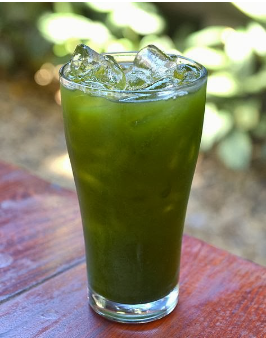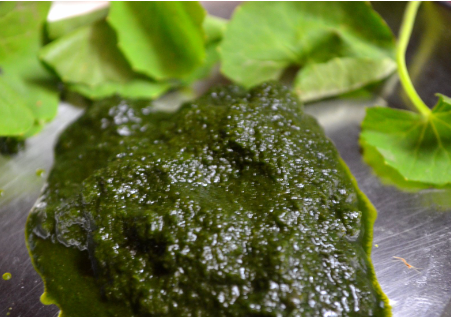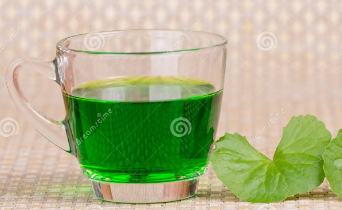Thankuni is a unique plant that belongs to the Apiaceae family and goes by various names. It’s closely related to popular herbs like parsley and cilantro, which you might be more familiar with. Another name for thankuni is Centella asiatica, which is the same as pennywort. While it has spread to other regions, it’s primarily found in Southeast Asia and thrives in moist and humid environments. Interestingly, in some parts of the world, it’s also referred to as “gotu kola.” Despite the similar-sounding name, it’s important to note that thankuni is not related to the kola nut used to flavor cola drinks; they come from different plants.
Table of Contents
Uses of Thankuni:
Thankuni, a spice with a rich history, has been cherished by both Indians and Chinese for centuries. In Ayurveda, it has been hailed as a remedy for anxiety, while ancient Sanskrit texts mention its use in treating heart disease and respiratory ailments like bronchitis. Fascinating tales from China tell of cultivators who attributed their longevity of over 250 years to thankuni. Even in traditional Chinese medicine, this spice continues to hold significance. Sri Lankans noticed that elephants were drawn to thankuni, and since elephants are known for their long lives, its popularity soared in Sri Lanka as well. More recently, thankuni has gained attention due to the rising popularity of “nootropics,” substances that enhance cognitive function. Many people in the Western world have become acquainted with thankuni because it is believed to have beneficial effects on mental clarity.
Thankuni shares a close relation to parsley, exhibiting similar characteristics. Its appearance is reminiscent of a blend of watercress and parsley, while its taste carries a hint of parsley’s sharpness with a touch of cooling sensation.
Benefits of Thankuni:
- Wound Healing: Imagine getting injured while playing without any nearby Thankuni leaves to quickly stop the bleeding. But placing Thankuni leaves on the cut can provide relief from pain, stop the bleeding, and prevent infection.
- Treats thrombosis: Thrombosis can be a troublesome condition, especially when combined with other health issues affecting blood flow. Thankfully, consuming Thankuni leaf juice helps maintain clean blood, ensuring oxygen-rich blood reaches every cell in the body. This promotes overall well-being and can alleviate problems like swelling in the hands and feet.
- Prevents blood clot: Thankuni leaves contain minerals that aid in quick blood clotting, preventing the formation of dangerous clots that can harm vital organs such as the brain, kidneys, and heart. By keeping this in mind, we can take proactive steps to protect our health.
- Reduces inflammation: Internal injuries can lead to various complications, including fever, fatigue, muscle pain, and loss of appetite. Fortunately, Thankuni leaves are rich in ingredients that effectively reduce inflammation, providing quick relief from pain and irritation. Additionally, they help prevent several types of infections.
- Cures Ulcers: Thankuni leaves are excellent for addressing stomach problems, including ulcers and diarrhea. Regular consumption of Thankuni leaves can alleviate digestive issues and provide relief for those experiencing chronic diarrhea.
- Reduces mental fatigue: For individuals dealing with mental fatigue and stress, Thankuni leaf juice works wonders. It helps regulate the production of stress hormones, leading to reduced stress and greater emotional stability. This can also contribute to a decreased likelihood of experiencing anxiety.
- Increases brain performance: Regular consumption of Thankuni leaves boosts the levels of antioxidants and chemicals like pentacyclic triterpenes in the body, enhancing brain function. Improved memory and sharper cognitive abilities are among the benefits. Experts even recommend Thankuni leaf juice for young children as it is believed to support brain health and may have potential benefits for conditions like Alzheimer’s.
- Cures sleep problems: If you struggle with falling asleep, try starting your day by drinking water infused with Thankuni leaves. It helps calm the nerves and promotes better sleep, allowing you to easily drift off at night.
- Detoxifies the body: While carrot or lemon juice is commonly associated with detoxification, Thankuni leaves are also a fantastic natural option. Consuming a mixture of one teaspoon of honey with Thankuni leaf juice daily helps eliminate toxins from the body, promoting overall wellness and proper bodily function.
- Normalizes blood flow in the body: Many individuals face challenges with thrombosis and impaired blood flow due to various health conditions. By consuming Thankuni leaf juice, blood remains pure, ensuring that oxygen-rich blood reaches every cell in the body. This can help alleviate issues such as swelling in the hands and feet, restoring a sense of balance and well-being.
Thankuni Recipes:
Thankuni Smoothie
This refreshing Thankuni smoothie combines the goodness of Thankuni leaves, banana, spinach, and coconut water or almond milk. Packed with nutrients, this smoothie is a great way to start your day or replenish your energy after a workout. The Thankuni leaves add a unique flavor and provide their health benefits, making this smoothie both delicious and nutritious.

Ingredients:
- Handful of thankuni leaves.
- 1 ripe banana
- 1 cup spinach
- 1 cup coconut water or almond milk
- 1 tablespoon honey (optional)
Instructions
- Wash the Thankuni leaves thoroughly.
- Blend all the ingredients together in a blender until smooth.
- If desired, add honey for sweetness.
- Pour into a glass and enjoy a refreshing and nutritious Thankuni smoothie.
Thankuni Pesto
Elevate your dishes with the vibrant flavors of Thankuni pesto. Made with fresh Thankuni leaves, basil, Parmesan cheese, and nuts, this pesto sauce is versatile and can be used in various recipes. Spread it on sandwiches, mix it with pasta, or use it as a dip—the possibilities are endless. The Thankuni leaves add a distinctive taste and contribute to the healthful properties of this flavorful sauce.

Ingredients
- 1 cup thankuni leaves.
- ½ cup fresh basil leaves
- ¼ cup grated Parmesan cheese
- ¼ cup pine nuts or walnuts
- 2 cloves garlic
- ½ cup extra virgin olive oil
- Salt and pepper to taste
Instructions:
- Combine the Thankuni leaves, basil, Parmesan cheese, pine nuts or walnuts, and garlic in a food processor.
- Pulse until well blended.
- Slowly add the olive oil while the food processor is running until the pesto reaches the desired consistency.
- Season with salt and pepper to taste.
- Use the Thankuni pesto as a sauce for pasta, spread it on sandwiches, or use it as a dip.
Thankuni Tea
Enjoy a soothing cup of Thankuni tea for a moment of relaxation. Made from Thankuni leaves steeped in hot water, this herbal tea offers a refreshing and calming experience. You can add a touch of honey or lemon to enhance the flavor according to your preference. Sip on this nourishing tea to benefit from the therapeutic properties of Thankuni leaves.

Ingredients
- Handful of Thankuni leaves.
- 2 cups water
- Honey or lemon (optional for taste)
- Salt and pepper to taste
Instructions:
- Wash the Thankuni leaves thoroughly.
- Bring the water to a boil in a saucepan.
- Add the Thankuni leaves to the boiling water and let it simmer for about 5 minutes.
- Remove from heat and strain the tea into cups.
- Add honey or lemon if desired for additional flavour.
- Sip and enjoy the soothing and refreshing Thankuni tea.
Dosage of Thankuni
Extract dosage: Take 60mg of Thankuni extract orally, two to three times daily.
Dried leaves dosage: Consume 600 mg of dried Thankuni leaves orally, three times daily.
Tea dosage: Enjoy 1 cup of Thankuni tea orally, three times daily. Refer to the recipe section if you desire to prepare the tea.
Side effects of Thankuni:
Using Thankuni may cause some common side effects such as an upset stomach, feeling nauseous, sensitivity to sunlight, itching, allergies, and a burning sensation. Taking a large dose of Thankuni can result in drowsiness, high blood sugar levels, high blood pressure, and feeling excessively tired. It’s important to be aware of these effects.
In some cases, Thankuni can lead to more serious side effects, including liver problems, nausea, stomach pain, a mild fever, loss of appetite, dark urine, pale-colored stools, and jaundice. If you experience any of these symptoms, it’s crucial to seek medical attention immediately.
Remember to always consult with a healthcare professional before using Thankuni or any other supplements, as they can provide personalized guidance and advice based on your specific health condition and needs.
Interaction of Thankuni with other drugs:
If your doctor has prescribed this medication to you, it’s important to inform them about any other medications you are taking. Your doctor or pharmacist is likely already aware of potential drug interactions and will monitor you for any issues. Before making any changes to your medication regimen, always consult with your doctor, healthcare provider, or pharmacist.
Fortunately, Tankuni does not have any known severe or serious interactions with other drugs. However, it does have moderate interactions with around 28 different drugs, and mild interactions with about 25 different drugs. It’s crucial to keep in mind that this list may not include all possible interactions.
To ensure your safety, it’s essential to communicate openly with your healthcare team. Inform your doctor or pharmacist about all the medications you are currently taking, including over-the-counter drugs, supplements, and herbal products. It’s also a good idea to keep a list of all your medications and share it with your doctor and pharmacist during your appointments. If you have any questions or concerns about your health, don’t hesitate to reach out to your physician for guidance.
References
Hubby L (2021) Thankuni: The Anti-Dysentery Leaf. Am J Ethnomed Vol. 8 No.5:e011.